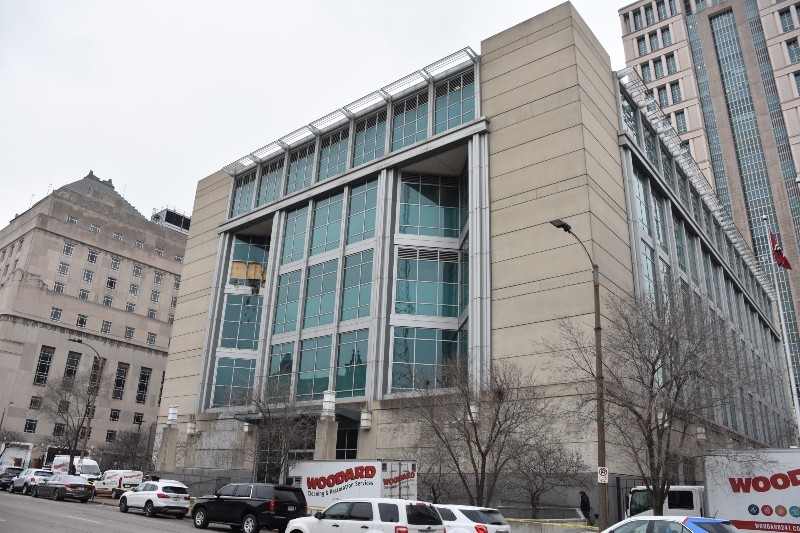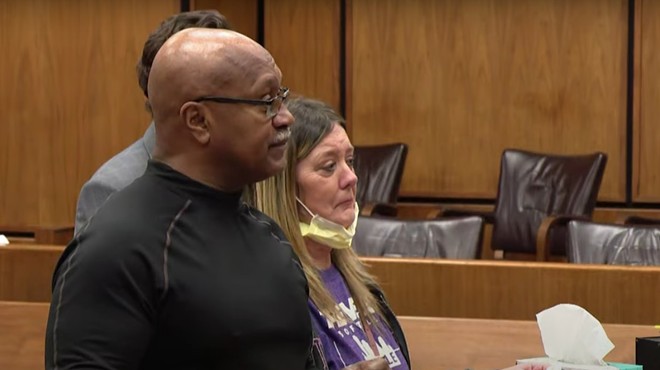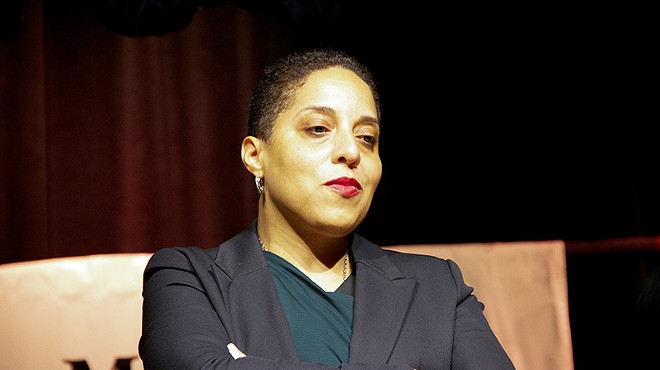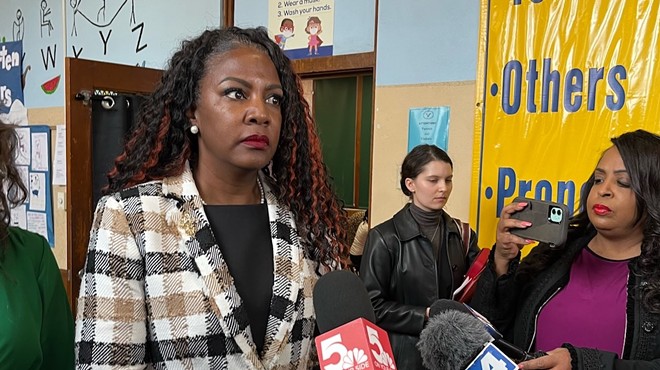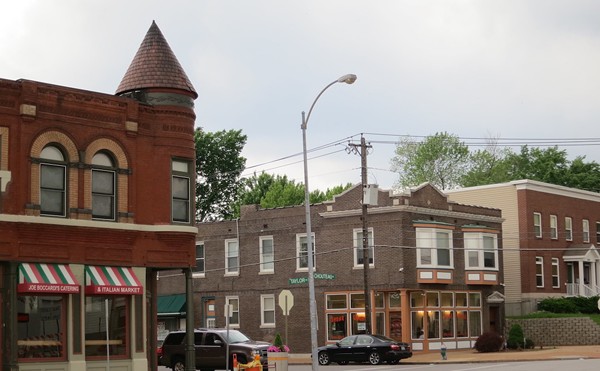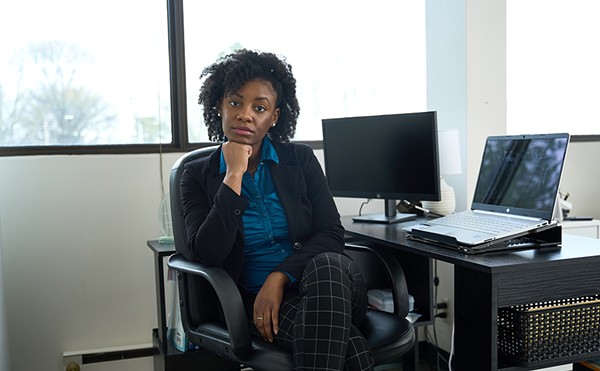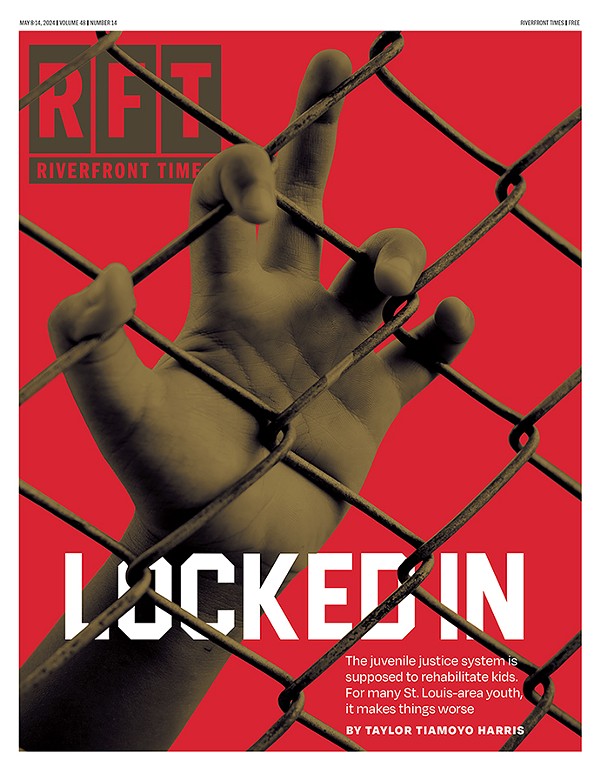The jail population in the city of St. Louis is up 28 percent since the start of the year as judges are allowing fewer defendants to go free on bond in the wake of the firestorm that followed the maiming of Janae Edmondson downtown in February.
Daniel Riley, the 21-year-old accused of causing the crash that cost Edmondson her legs, was free on bond when he struck the 17-year-old, despite having violated the terms of his bond dozens of times. The Circuit Attorney's Office and Judge Bryan Hettenbach came under intense public scrutiny, including from each other, for Riley not being in jail at the time of the crash. As a result, some activists and court watchers say that both prosecutors and judges are now afraid of the potential backlash that will come if someone they let free on bond commits a heinous crime.
"They're competing to be tough on crime, both the circuit attorney's office and the judges," says Mike Milton, the founder of Freedom Community Center, an organization dedicated to restorative justice. "They are afraid of negative backlash. They know that the world is looking at St. Louis, looking at them right now."
Milton says that his organization coordinates volunteer court watchers and monitors the rate at which judges grant defendants bond. He says he's seen a "huge amount of bond revocations happening for the smallest of things," including defendants being a few minutes late to a hearing or for miscommunication between a defendant and the third-party company that operates ankle monitors.
This tougher line, Milton says, inevitably means a more crowded jail. At the start of the year, the city jail had 484 detainees awaiting their day in court. As of Tuesday, there were 621 individuals detained in the jail.
Sarah Nixon is the pretrial organizer for Freedom Community Center and is often in court during bail hearings. She says that at the start of the year a number of reforms related to bail proceedings had been implemented in the city circuit court as it emerged from the way business was done during COVID-19. Detainees were being brought into court in person and given time to meet with pretrial services to complete a public defender application. They were better able to communicate with their defense attorneys and contest the arguments the prosecution was putting forth during bail hearings.
Nixon says she was at Riley's initial appearance in court when he was allowed to remain free on bond.
"In that moment, I had no idea what I was witnessing would come to mean," she says. "Since then, all of the progress that we've been pushing for has been rolled back."
She describes what's happened as "something that has just occurred in the background, quickly and quietly."
According to court data, 65 percent of all initial bond hearings in February resulted in a judge denying bond of any type, up from 54 percent in January. March data is not yet available.
One judge, Rochelle Woodiest, denied bond to about 53 percent of individuals who appeared in her courtroom at the start of the year. That number spiked to 90 percent in the later part of February and was at 78 percent for all of March, according to data from the Freedom Community Center.
Joel Currier, spokesman for the Circuit Court in St. Louis, said in a statement that the six weeks since the Janae Edmondson crash is too narrow of a time frame to draw relevant conclusions regarding bond hearings.
"The judges serving the 22nd Judicial Circuit's bond divisions carefully review a variety of factors when deciding whether to release defendants awaiting trial in accordance with Missouri Supreme Court rules," Currier said "The Court invites members of the public to observe the bond review process for themselves and always welcomes feedback."
Nixon says she has heard judges explicitly refer to the Riley incident as the reason that they would take a tougher line on bond.
She adds that getting tougher on bond means denying bond to people who are highly unlikely to be a danger to the community. Nixon specifically cites the case of a single mother facing an assault charge who had no criminal history as well as the support of her family and her church but who was nonetheless denied bond.
After the public feud between judges and the Circuit Attorney's Office about who was responsible for Riley being free on bond, Nixon says she's seen plenty of examples of prosecutors going out of their way to be stringent in regards to bond — and making sure their doing so is clear in the record.
She recounts one recent instance when she saw a prosecutor file a motion to revoke the bond of someone who had not yet registered with the company that provides ankle monitor services. However, that person had yet to even be released from the city jail.
"The judge denied the motion to revoke the bond because the person hadn't even been released. They were like, ‘This person hasn't gotten released. Of course, they couldn't get the GPS monitor.’"
She adds, "You're seeing this almost wholesale rejection of bond by the prosecutor's office."
This story has been updated.
or follow on Twitter at @RyanWKrull.
Coming soon: Riverfront Times Daily newsletter. We’ll send you a handful of interesting St. Louis stories every morning. Subscribe now to not miss a thing.
Follow us: Google News | NewsBreak | Reddit | Instagram | Facebook | Twitter

